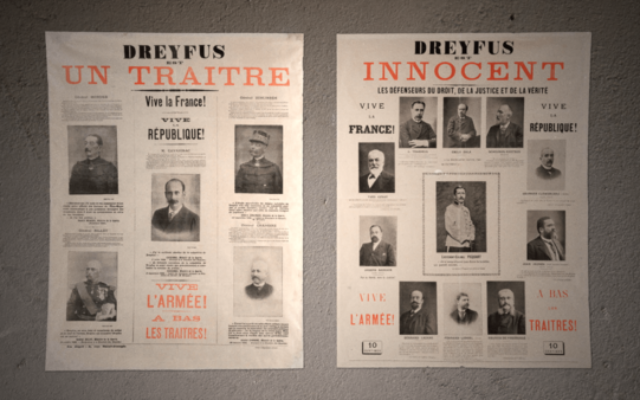The story of antisemitism in four parts
A new documentary, showing on Docplay, chronicles the history of antisemitism, from its origins to the 'new faces'.
The four-part documentary Antisemitism: 2,000 Years of History is ambitious, attempting to explore the evolution of antisemitism through the ages, and how it continues to resurface, albeit in different ways, reinventing itself constantly. Sometimes subtle, sometimes not.
The documentary series by Jonathan Hayoun focuses on specific stories of antisemitism, termed “the oldest hatred”, from different eras.
The series looks at how leaders would use antisemitism to unite citizens in a common cause, often to divert attention away from crises. The Jews became scapegoats and blaming them became the norm.
Themes of wealthy Jews controlling the world are constantly repeated, as well as the belief that the Jews killed Christ.
And while Jews have been fully assimilated into many societies for long stretches, they have still found themselves as outcasts.
“Inevitably they’ve found themselves cast as tolerated outliers at best or demonised and dehumanised figures who should be annihilated, the latter view culminating in the Holocaust,” Simi Horowitz writes for The Forward.
According to Horowitz, exploring concerns facing Jews is not new subject matter for Hayoun. The director was previously involved with the documentary Saving Auschwitz.
In an email written to Horowitz, Hayoun explained that he always sought to speak up against antisemitism.
“It was first necessary to identify, with the co-writer Judith Cohen Solal, the decisive moments in the history of antisemitism and renounce the claim to exhaustiveness or objectivity in these choices,” Hayoun wrote.
“The film highlights events that shed light on the evolution of a ‘total’ and global story.
“The series has received critical and public acclaim, especially among younger French viewers, many of whom saw it more than once.”
And while Horowitz notes the hole in the series regarding the question of “why”, she also notes that perhaps that is a question that cannot be answered.
The four-part series, nevertheless, Horowitz says, is “informative, engaging and provocative” and “refreshingly devoid of manipulation, sentimentality and sensationalism”.
Interweaving interviews with photos, archive footage and historical reconstructions, the series looks at key events through history, beginning with ancient Egypt, where it is believed the first wave of antisemitic violence occurred.
Jews were blamed for Egypt’s failures, including the Romans usurping its government. Jews were accused of being “different and privileged” and of conducting human sacrifices ahead of Pesach, leading to pillaging and attacks.
The final episode chronicles the new faces of antisemitism, looking at how antisemitism evolved in the post-Holocaust world. It deals with the birth of Israel, Holocaust literature that began to emerge and the Holocaust deniers who followed, the Munich Olympics massacre, the UN General Assembly condemning Zionism as a form of racism and racial discrimination, and more.
What Horowitz deduces in her analysis for The Forward is that the documentary purports that there is no catharsis for antisemitism.
As novelist A.B. Yehoshua states at the end of episode two, “Jews were not exterminated because of ideologies, economic or religious, but because Jews were simply microbes.”
How do you recover from that?
Horowitz writes that antisemitism, its history, its future, is unique.
“Predictions cannot be made. Ingrained, pervasive and malleable, antisemitism remains one sly shape-shifter.”
Antisemitism: 2,000 Years of History is now showing on Docplay. For more, visit docplay.com


comments